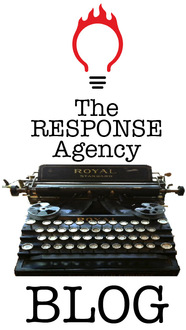My note to a young hopeful who had no better sense
than to ask me for feedback on a résumé
You’ve done a good job of creating a résumé in the format most schools suggest. Therein lies the problem. Employers are deluged with résumés that look like what most schools suggest. The result is that each résumé your prospective employer sees, including yours, is a clone of the one before and the one before that.
So my first suggestion is to put some thought into making your résumé stand out, that is, making YOU stand out. Make your unique abilities and personality leap from the page. The less effort it takes an employer to see what makes you great and unusual, the better off you are.
Your résumé is an advertisement, and you are the product. It is a sales pitch, your one shot at getting an employer to take a second, serious look at you. Yet the average résumé is typically laid out like a form. Think like a marketer. If taking a liberty with the form here or there helps you sell, take the liberty.
Re “Objective”: They all say pretty much the same thing, which is pretty much nothing. No rule says you need an objective. If you must have one, at least dispense with the flatulence. Spare us the tired clichés like “to utilize my skills,” “challenging position” and “personal growth.” Try something refreshingly honest. Here is the best objective that ever crossed my desk: “To be the most productive and profitable account executive in the history of the RESPONSE Agency.” I hired her and she became our highest-paid employee, counting me.
Don’t believe anyone who says to keep your résumé to one page. Take the space you need to sell yourself. No less. Just make sure that every word is needed. People will read a long résumé if it’s long for a reason, that is, packed with fascinating, relevant stuff about you. No one will read anything, long or short, that merely rambles. I last updated my résumé 18 years ago. It ran five pages.
Use white space, like double returns between paragraphs, liberally. It will increase readership. Especially if your resume runs long.
Turn features into benefits. Why do I care that you had a four-year scholarship as a Collegiate Softball Athlete? If it indicates something about your character and sense of commitment or willingness to work hard and succeed against all odds, don’t expect me to infer it. Point it out, succinctly. As for all those community events you participated in, what skills or character traits that I’ll find useful did they help you develop?
Until more résumés say, “I prefer hanging with disease-carrying rodents,” saying “I love to work with people” will fail to impress. On the other hand, if you show me (note: not tell me) how you work with people, you might score points. Show me that you’re skilled at conflict resolution, you can adapt to a variety of working conditions, you can coach and inspire people without putting them on the defensive, you can take advice without feeling personally attacked ... or something. Again, show don’t tell, and establish benefits not just features.
STAND OUT. In a positive way, of course. Wearing a clown suit to a fine restaurant will make you stand out, but it won’t get you a table. Build your résumé so that what makes you unique, invaluable and indispensable bonks even the drowsiest prospective employer paying only half-attention over the head.
—Steve Cuno
 RSS Feed
RSS Feed



